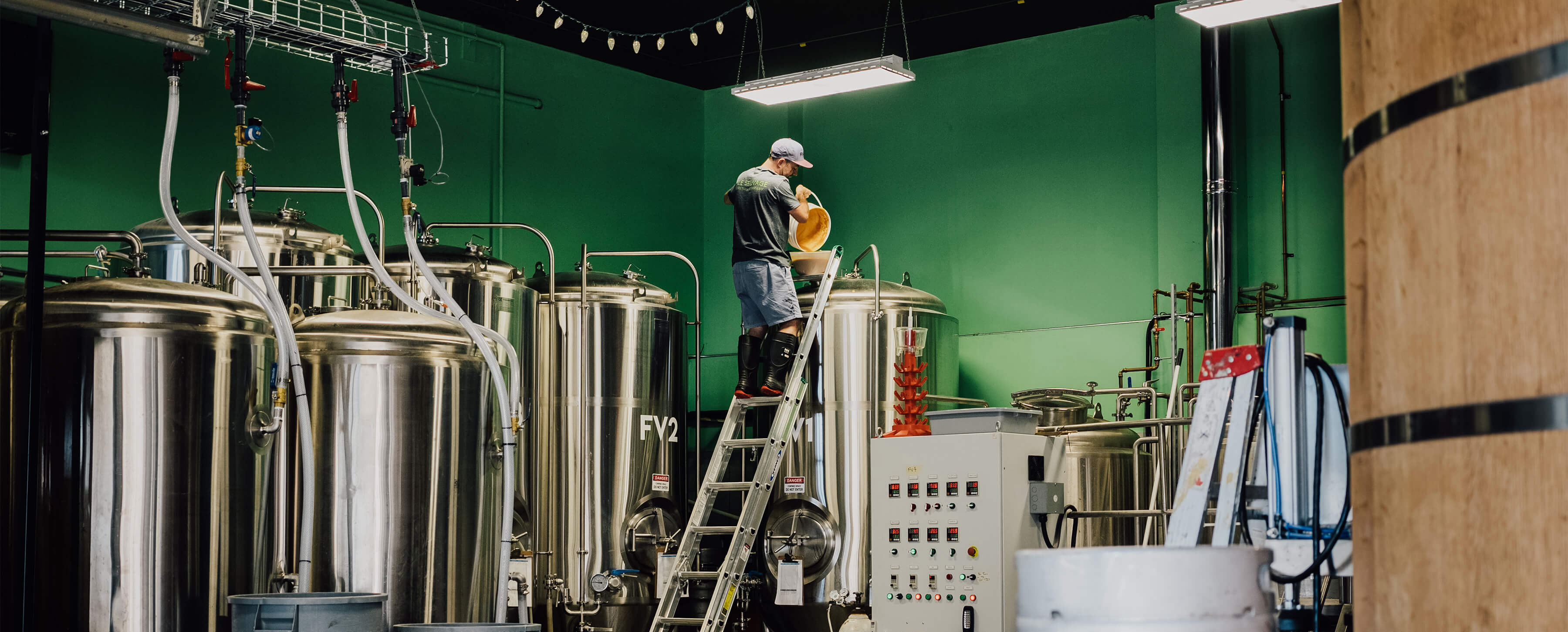Liquid assets
June 07, 2024
These crafty grads are pouring their talents into making award-winning beer, cider and spirits.
As the weather warms up and patio season kicks into gear, let’s raise a glass to these UVic grads who’ve turned their thirst for knowledge into careers in the craft beverage industry.
Ampersand Distilling Company
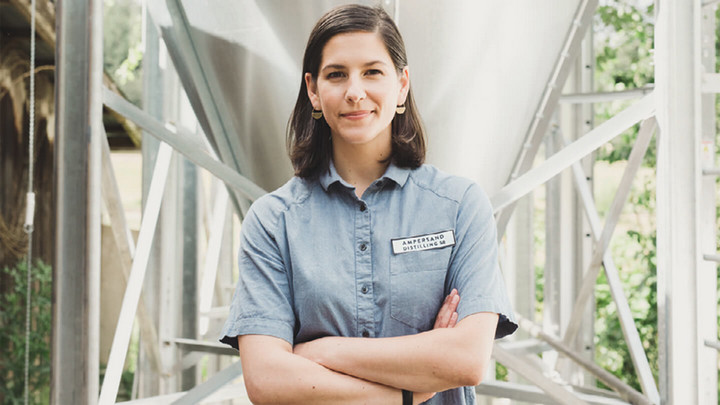
- What: Launched in 2014, this bucolic Cowichan Valley distillery has attracted many a devotee thanks to its award-winning Ampersand Gin, which has been voted BC’s Favourite Gin at BC Distilled three years in a row, and nabbed Canada’s Best Classic Gin honours at the 2022 World Gin Awards. Not to be outdone, Ampersand’s Nocino green-walnut liqueur was deemed 2021’s Spirit of the Year by the Artisan Distillers of Canada.
- Where: 4077 Lanchaster Rd, Duncan, BC
- Who: Jessica Schacht, BFA ’10, co-owner, recipe development, sales and communications
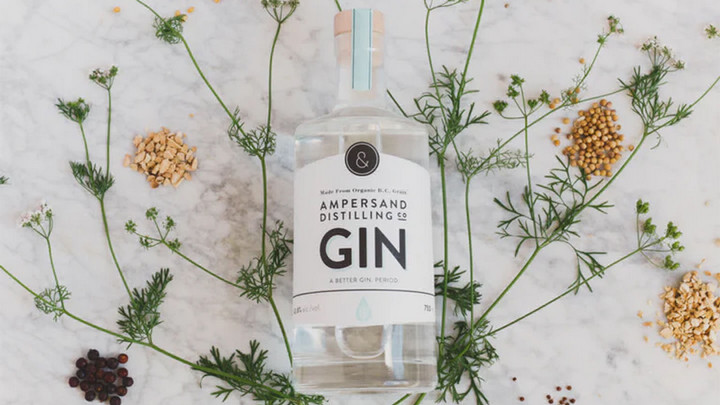
Significance of the name? I’ve always heard that names joined with an ampersand (&) signify a closer collaboration. This being a family business, that seemed to make a lot of sense. It’s also about bringing things together: the art & science of distilling, great ingredients & techniques, tradition & innovation.
How do your UVic studies connect with what you’re doing? I studied theatre, specifically production and management. It gave me a great foundation for managing workflows and processes as we started the business, and as we continue operations. My creative side also helps with things like copywriting and working on other creative aspects of the business.
What’s a common misconception people have about your job? That we get out very often! We visited way more distilleries and bars before we opened than we have time to do now. Also, vodka isn’t only made out of potatoes (ours is made from wheat).
If you’re out, what are you ordering that’s not your own creation? Anything in the vein of a Negroni, or something with infused syrups.
Black Kettle Brewing
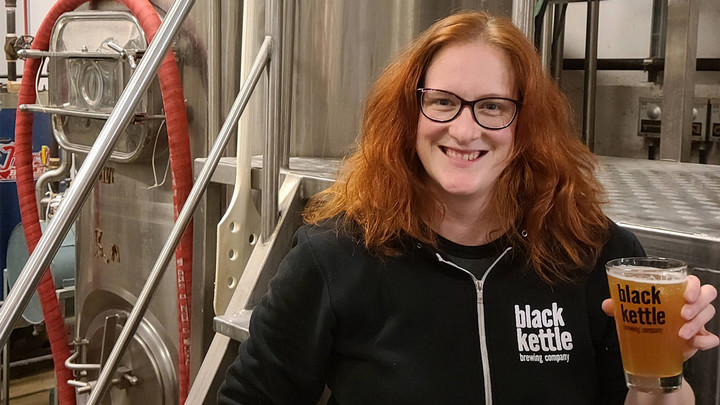
- What: Opened in 2014, this small but mighty North Vancouver brewery and tasting room with an equally delicious food program is known for its Dead Head Pilsner, Sidetrack Pale, Derailed IPA and Pete’s Creek Lager.
- Where: 720 Copping St., North Vancouver, BC
- Who: Sarah Polkinghorne, BSc ’11, head brewer
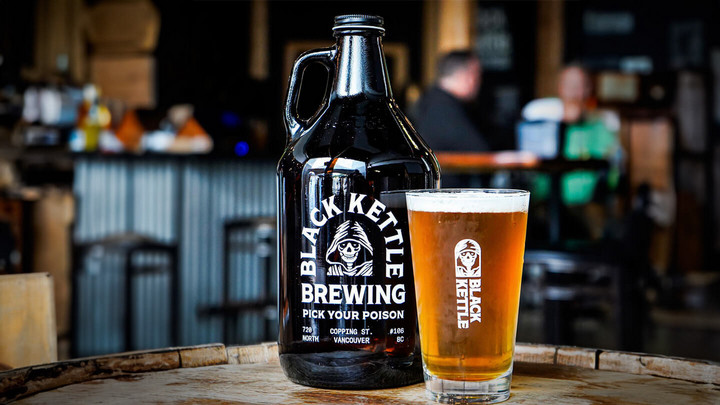
How do your UVic studies connect with what you’re doing? I studied chemistry. It got me my first job in brewing, and it allows me to do testing on the products and understand the chemistry and microbiology that goes into making beer.
What makes your products unique? We don’t filter our beers or add any clearing agents. All clearing is done through cold crashing and aging.
If you could change one thing about the industry, what would it be? More diversity and inclusion in the industry.
If you’re out, what are you ordering that’s not your own creation? I like a Victoria classic: Hoyne Dark Matter.
Category 12 Brewing
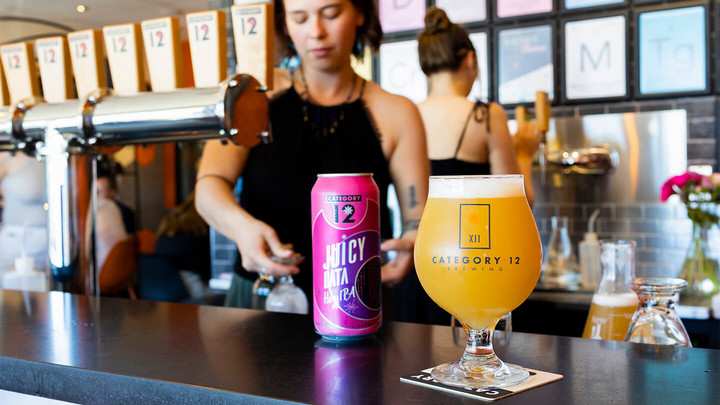
- What: What do you get when you combine a doctorate in microbiology and biochemistry with more than 25 years’ experience in the brewing racket? Category 12—launched in 2013 and best known for its ultra-refreshing Juicy Data Hazy IPA, which has been scientifically proven to evoke the response “What is that delicious looking beer?” whenever served to a nearby patron.
- Where: 2200 Keating Cross Rd C, Saanichton, BC
- Who: Michael Kuzyk, BSc ’94, PhD ’00, founder and head brewer
Significance of the name? We wanted a name for our brewery that could take on its own personality. Category 12 is a fitting blend of sci-fi and my hard science background—think Area 51 blended with Carbon 12 and you’ll get what we were thinking.
How do your UVic studies connect with what you’re doing? I studied microbiology and biochemistry at UVic. It perfectly relates to brewing which is a beautiful blend of both disciplines. It’s all biochemistry on the brewhouse, and microbiology takes over in the fermentation cellar. I love it!
What makes your products unique? My microbiology background allows me to use different strains of yeast for nearly every recipe. This allows our beers to taste very distinct from each other. For process simplicity, most breweries use only one or two strains at most for all of their beers.
If you could change one thing about the industry, what would it be? Honestly, to make it less about the beer and more about the healthy social benefits of bringing people together in a welcoming atmosphere. That is the essence of what we try to foster in our tap room.
If you’re out, what are you ordering that’s not your own creation? Delirium Tremens, my favourite beer in the world.
Creek & Gully Cider
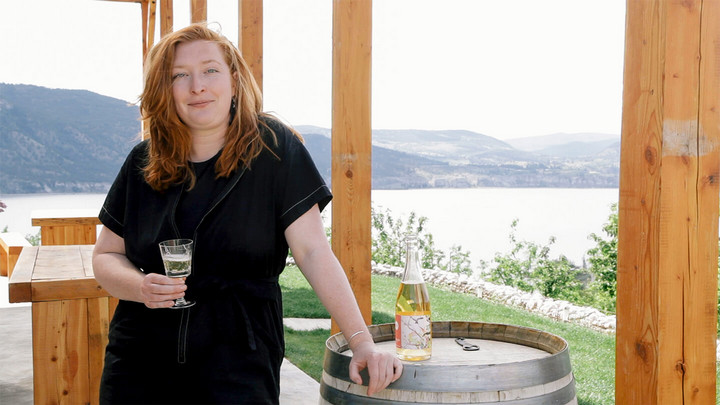
- What: Launched in 2018 and drawing inspiration from cidermaking and winemaking around the world, this family-run farm and cidery produces wild fermented ciders, using certified organic fruit grown on their Naramata farms.
- Where: 1053 Poplar Grove Rd., Penticton, BC
- Who: Annelise Simonse, BA ’17, director of operations
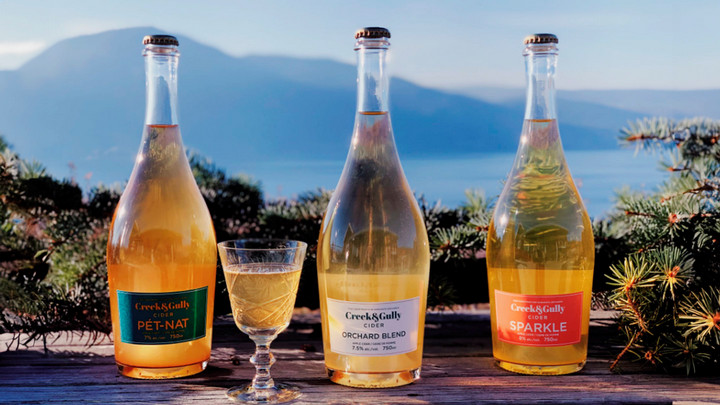
Significance of the name? My family has been farming on the same pieces of land for five generations. Each piece is separated by a creek or a gully—sometimes both. These are some of the main geographical features of this area (the Naramata Bench) and we thought it a fitting way to associate our business with the reason for its existence, our farm.
How do your UVic studies connect with what you’re doing? I studied Art History and Greek and Roman studies at university. While the direct parallels may not be immediately visible, a large part of my position is knowledge sharing—being able to articulate ideas in accessible ways is immensely helpful; whether it be to a customer, account or investor. I was also fortunate in my university career to have had the opportunity to travel to other parts of the world, and through my experiences and courses there, apply them as credits towards my degree. My experiences traveling are part of what uncovered my passion for fermentation.
What makes your products unique? We are using natural sparkling wine methods and applying them to cider. This means we allow for wild fermentation, we allow our ciders to create their own carbonation and we leave everything unfined and unfiltered.
Gladstone Brewing Co.
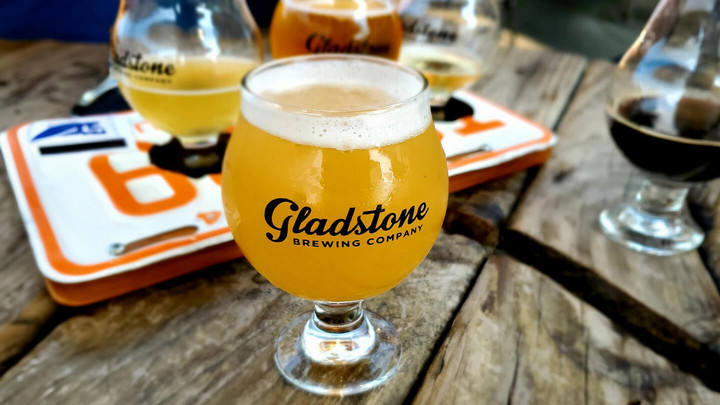
- What: From its humble home-brewing beginnings in a garage in Victoria’s Fernwood Village to becoming a hoppy hotspot in downtown Courtenay in 2015, Gladstone Brewing is a mainstay of the Comox Valley, delivering dependable Pilsners, IPAs, Hazy Pales and Cream Ales with plenty of homespun charm.
- Where: 244 Fourth St., Courtenay, BC
- Who: Daniel Sharratt, MA ’10, owner, CEO and General Manager
Significance of the name? During my graduate studies at UVic, my classmates and I started home brewing at my house on Gladstone Avenue in Fernwood Village. It was there that I started entertaining the idea of opening a brewery. We all graduated in 2010/2011 and got jobs (mostly government jobs). I continued brewing in my free time, and in 2013 started developing a business plan for Gladstone Brewing Co.
What did you study at UVic and how does it relate to what you’re currently doing? Economics. Mostly it helps with business strategy and looking at the big picture (how our business competes in the segment and our competitive advantages).
Anything new on the horizon that you’re excited about? We recently introduced a Light Lager (Glad Light) that we are excited about. It’s a 3.2% full flavour lager that we feel is a growing segment of the future of beer drinking.
What makes your products unique? My wife and business partner does all our can design work herself. So we have a nice professional image that looks like nothing else on the shelves.
Biggest challenge? Dealing with city bureaucracy. Trying to grow a business with all the red tape is a real downer and slows productivity and growth.
What’s the secret ingredient to your success? No secret here. If you work smart and hard, success will follow. Hire the right people and be humble.
If you could change one thing about the industry, what would it be? The provincial and federal governments could modernize their systems for reporting. I feel our business runs in the modern economy, but the government systems are decades old (IT and reporting tools).
If you’re out, what are you ordering that’s not your own creation? I am generally drinking anything in the sub 5% abv category. I lean towards lagers but love a nice nitro stout.
Île Sauvage Brewing Company
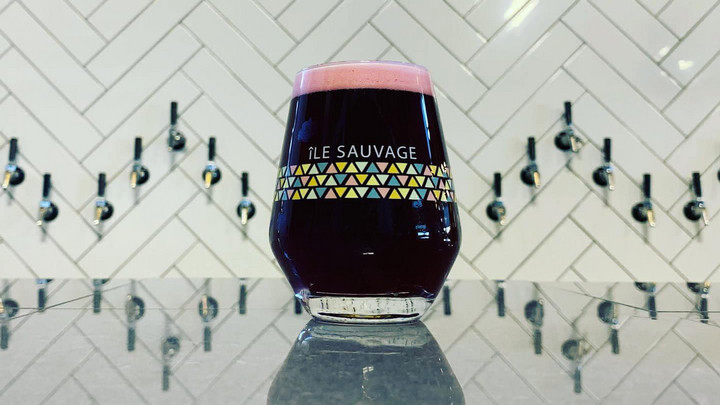
- What: This gem of a brewery and tasting room opened five years ago in the Rock Bay area of Victoria and is known for its Belgian-style wild and sour beers that often harness the funky powers of Kveik, Lactobacillus and Brettanomyces. If you know, you know.
- Where: 2960 Bridge St, Victoria, BC
- Who: Stephane Turcotte, BA ’05, co-owner and head brewer
Significance of the name? [French for “wild island,”] the name is a nod to my French-Canadian heritage as well as our inspiration from Belgian sour beers.
How do your UVic studies connect with what you’re doing? I studied English literature at UVic. I would say that my communication skills are utilized in what I’m currently doing.
What makes your products unique? Our products are unique in that they are not pasteurized and contain live cultures of yeast and bacteria.
What’s a common misconception people have about your job? Some people believe that we only make sour beers. However, we do make other craft beer styles including lagers, IPAs and saisons. Most of these other styles, though, have our unique spin on them.
If you could change one thing about the industry, what would it be? I would rather see more small local breweries with tasting rooms rather than seeing larger breweries that are distributed far and wide. From an environmental perspective, the place to order beer with the lowest carbon footprint is on tap in a pint glass at the brewery’s tasting room.
If you’re out, what are you ordering that’s not your own creation? I’m usually looking for a local hoppy beer—and my current favourite would be Driftwood’s revamped Pale Ale.
Moon Under Water Brewery and Moon Distilling Co.
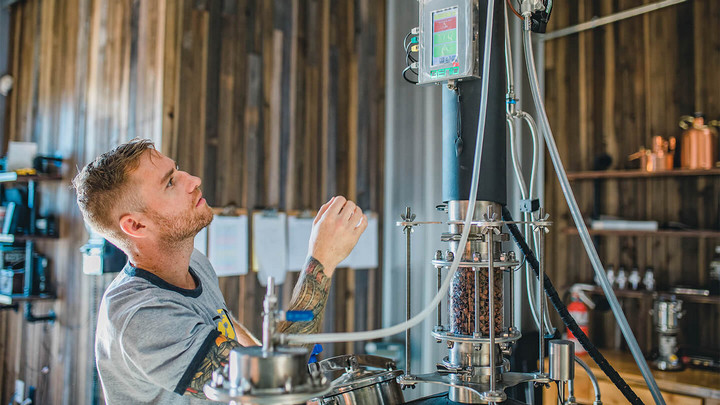
- What: This family-run brew pub opened in 2012, ahead of the craft beer curve. Specializing in German lagers, wheat and sour beers, they’ve since expanded into the distilling world and boast an impressive whisky program.
- Where: 350 Bay St., Victoria, BC
- Who: Clay Potter, BSc ’09, owner, president and brewmaster
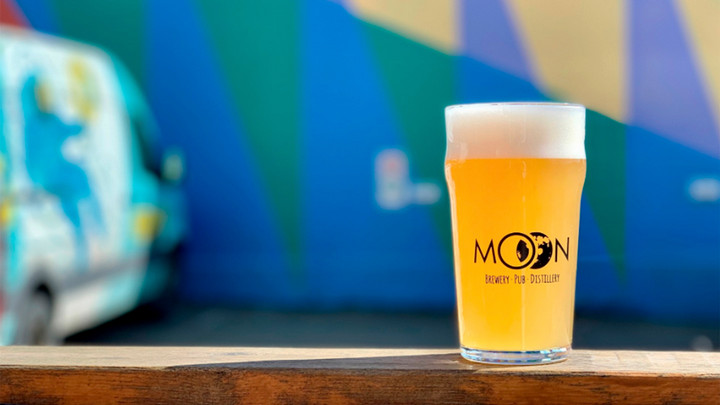
Significance of the name? Moon Under Water was based on a George Orwell essay about his “ideal pub.”
What was the inspiration? Matt Phillips originally. He sparked my interest in brewing as a career. Brewing was always my passion, then after working in the industry for five years and completing my Master’s of Science in Brewing Science, I was ready to run my own brewery and then build the distillery.
How do your UVic studies connect with what you’re doing? Microbiology and Biochemistry. It was a great base to work in the fermentation sciences… but to be honest I wish I did an MBA in business… hahaha.
What makes your products unique? We use 100 per cent locally grown and malted barley from Field 5 Farms on the Saanich Peninsula (only 20 km away). I’m at the farm every week picking up grain and talking with the farmers and maltsters. Often the whole process starts with a grain. The farmer will go over the specs, history and flavours, then my brewers and I will try and figure out how best to utilize it. It may turn into a beer, a non-alcohol product or whisky. It’s a hugely rewarding process that really connects our products to the local community.
What’s a common misconception people have about your job? That it’s all beer fests and recipe development. It’s really 90 per cent cleaning.
If you’re out, what are you ordering that’s not your own creation? I don’t get out much these days (young kids), but when I do it’s always local craft beer. Any of the family-owned, small producers really need our support… plus the beer here in Victoria is and always has been the absolute best in Canada.
Whistle Buoy Brewing Company Ltd.
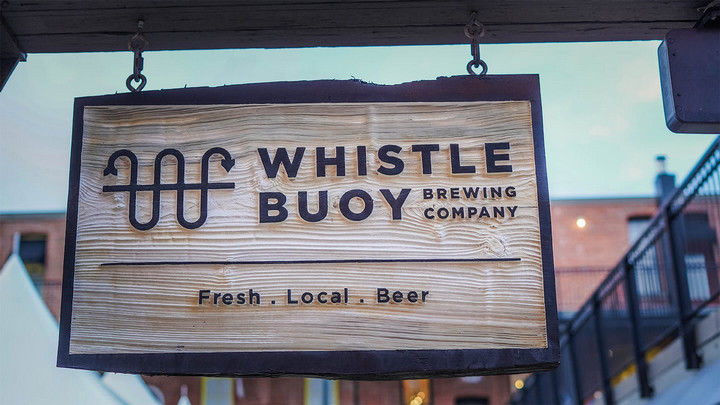
- What: Opened in the summer of 2019, this adventurous brewery and tasting room is a local favourite thanks to its cozy tap room, dog-friendly patio in Market Square and community events like film screenings, comedy shows and trivia nights. Although its top seller is the Coastality Pale Ale, they’re not afraid to flex their creative muscle, whether it’s a Kiwi Sour or a beguilingly hued Undersea Gose made with locally harvested bull kelp.
- Where: Market Square, Lower Courtyard, #63, 560 Johnson St., Victoria, BC
- Who: Isaiah Archer, BA ’11, co-founder, sales and marketing manager; Iwan Williams, BA ’15, co-founder and financial officer
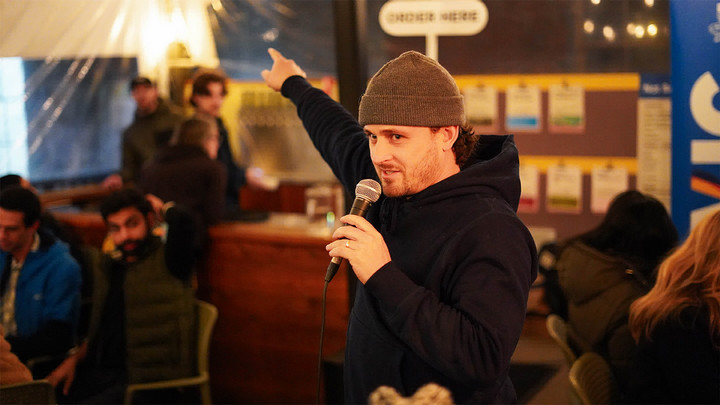
How do your UVic studies connect with what you’re doing? I studied political science and Economics. I have found relevant elements from my studies in economics when conducting the financials, but really the core content of my studies at UVic hasn’t been incredibly applicable to running a brewery, but what I did learn at UVic was how to learn and how to think critically, which has been invaluable to every aspect of running the business. —Iwan
What makes your products unique? Something we’re very committed to is using local ingredients as much as possible in our recipes. Many of our beers use 100 per cent island grown and malted barley along with other things like berries and hops. We really go out of our way to ensure we’re supporting the local growing community, which provides us with very high quality raw ingredients. We’ve built some really special relationships with local farmers and spent an enormous amount of money with local producers, which in turn makes our end products unique and very representative of the beauty of Vancouver Island.
What’s been the biggest challenge? Our industry is really struggling right now. Projections suggest that 15 to 20 per cent of Canadian craft breweries will close in the next 12 months. We’ve already seen a lot close in Metro Vancouver this year, and this will likely continue and make its way to smaller communities unfortunately. A lot of factors play into this including economic conditions, consumer preferences changing, debt from Covid related loans, etc. So there’s a lot of challenges, but our team is resilient and we will continue to adapt and serve our community in the best possible way.
If you’re out, what are you ordering that’s not your own creation? I really enjoy lighter ales and saison ales, so if I had the choice and it was on tap I’d drink a Four Winds La Maison Tropical Ale. —Iwan
Probably a Hazy IPA that’s been released recently by another BC craft brewery. —Isaiah
—Michael Kissinger, BEd '94

